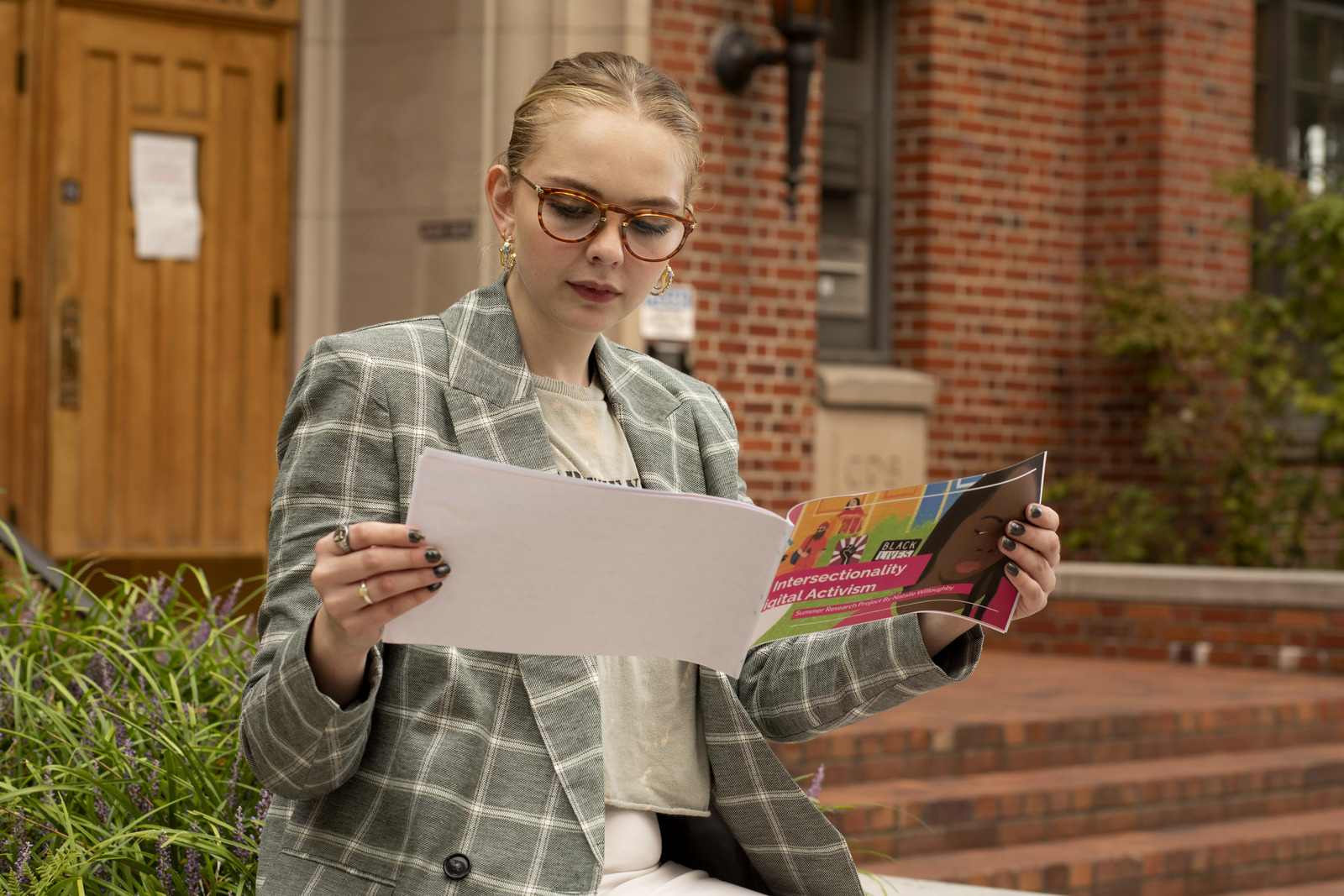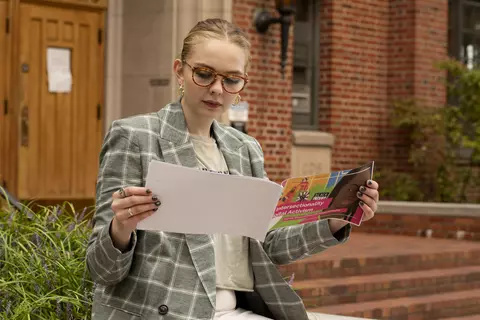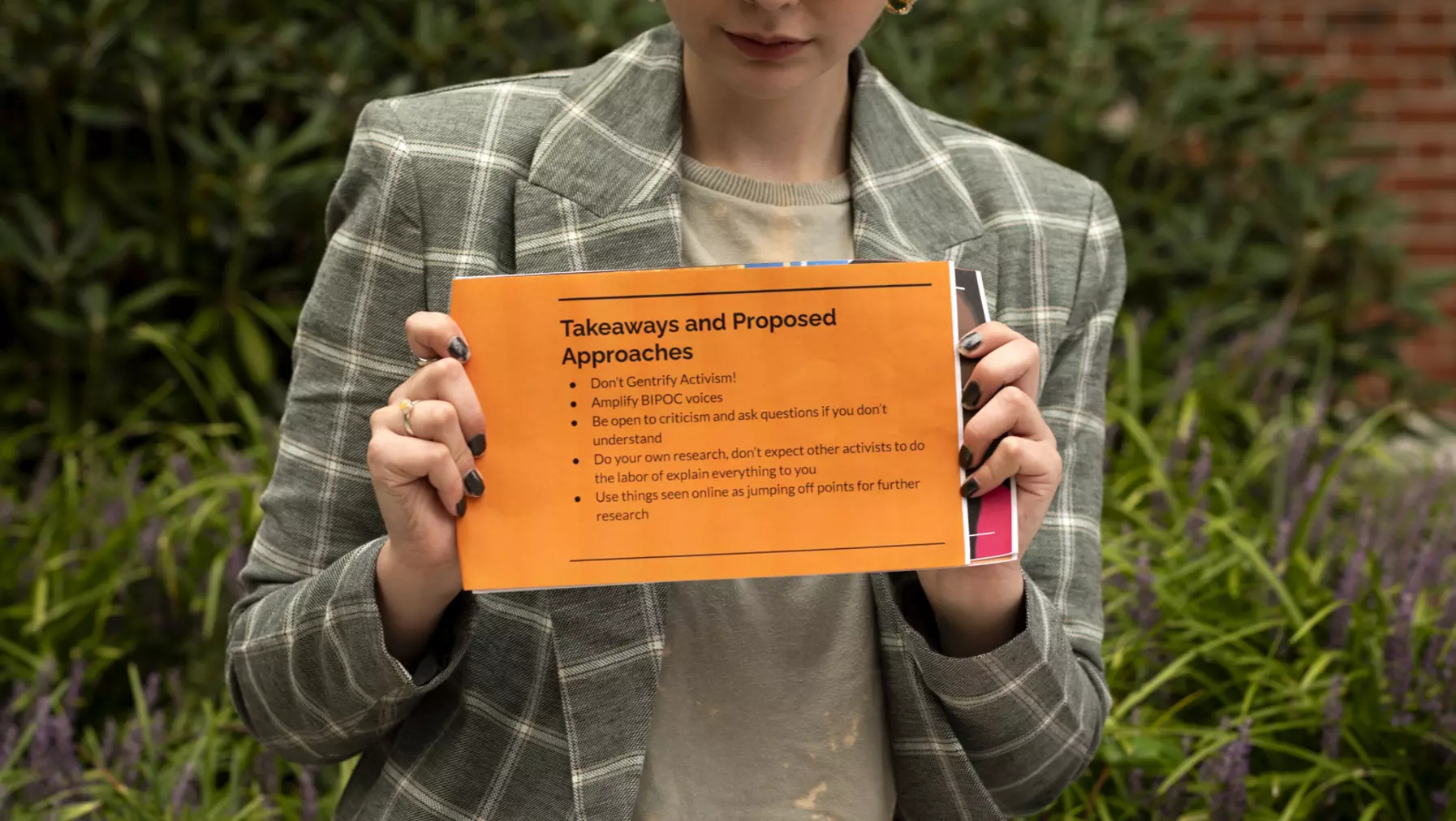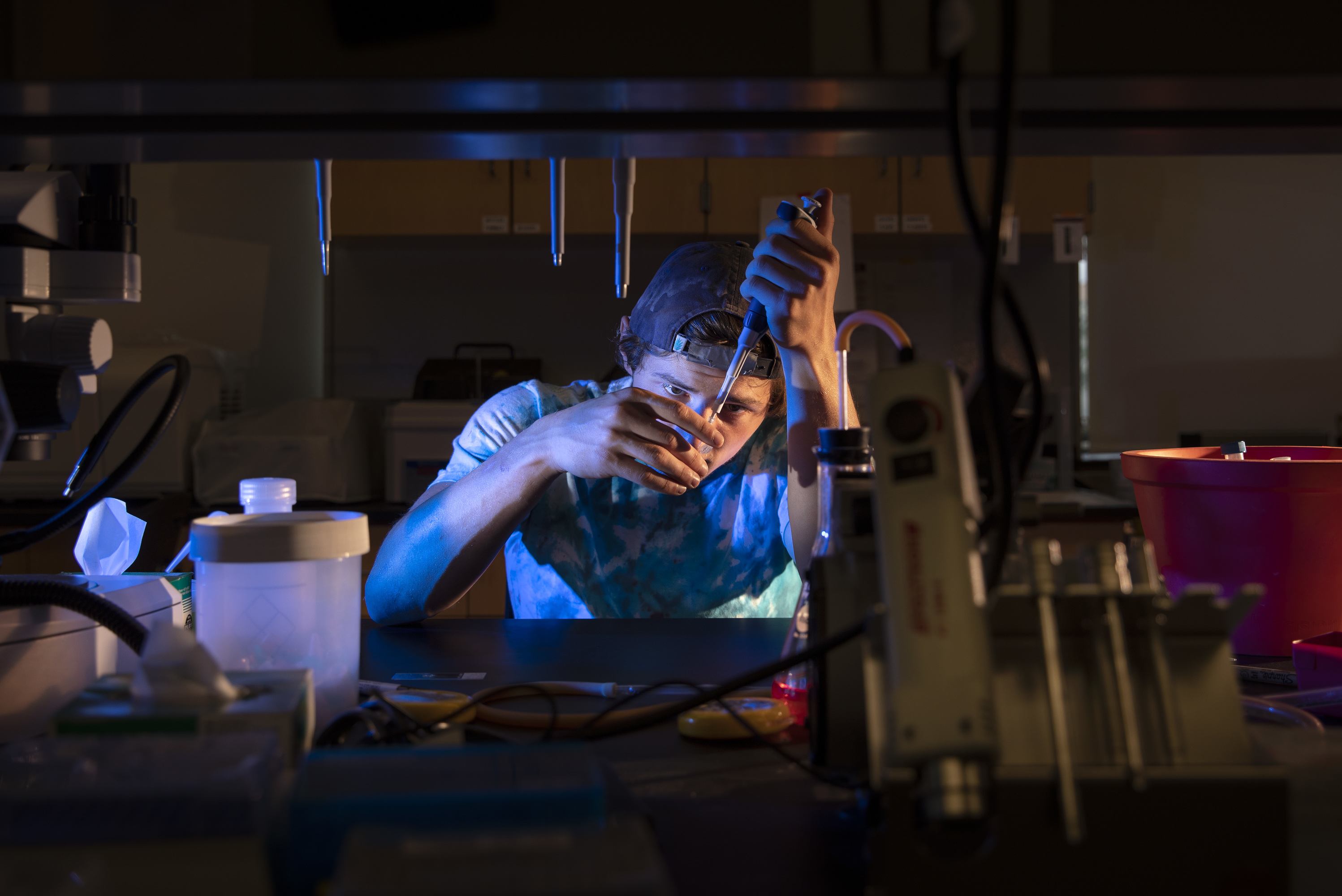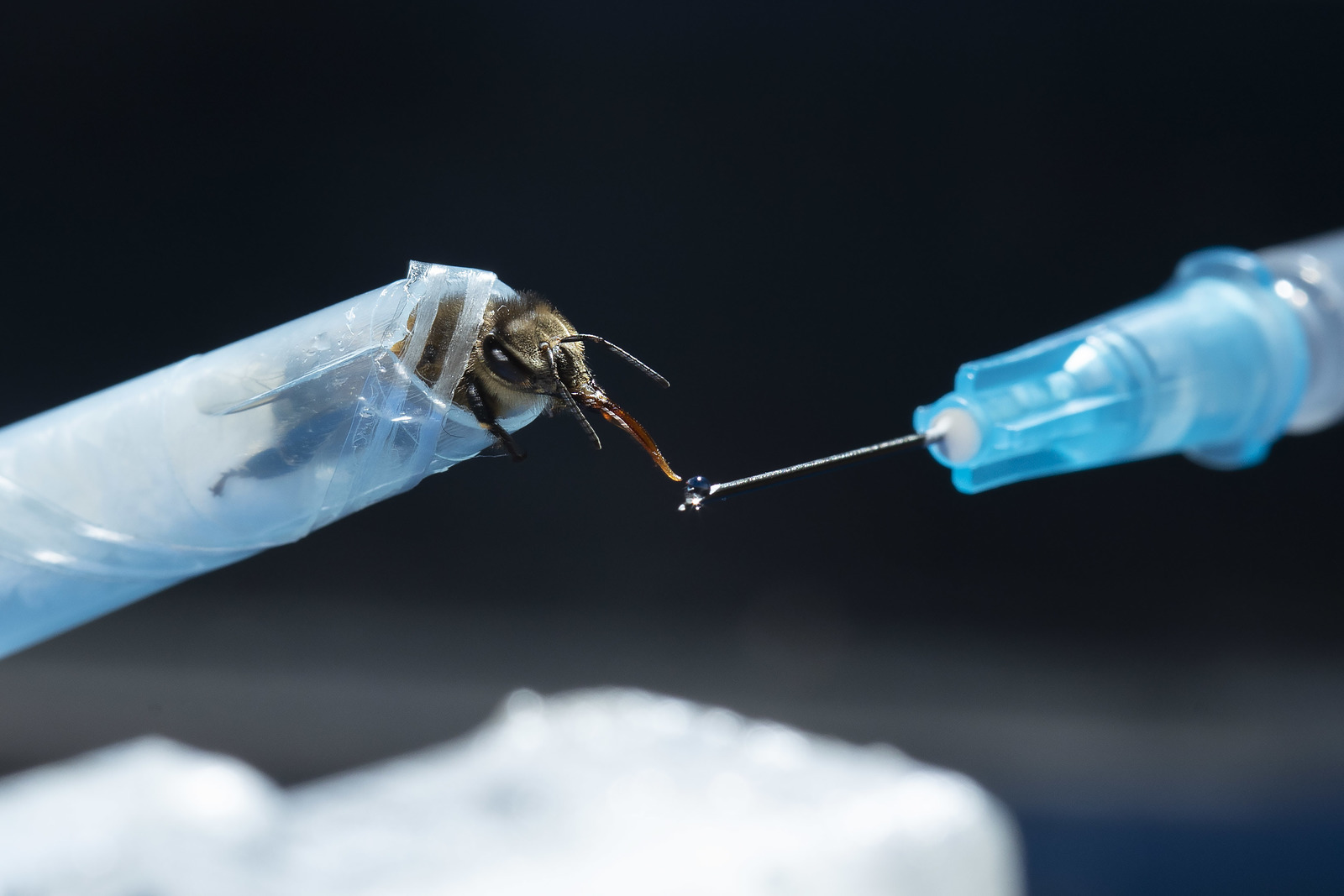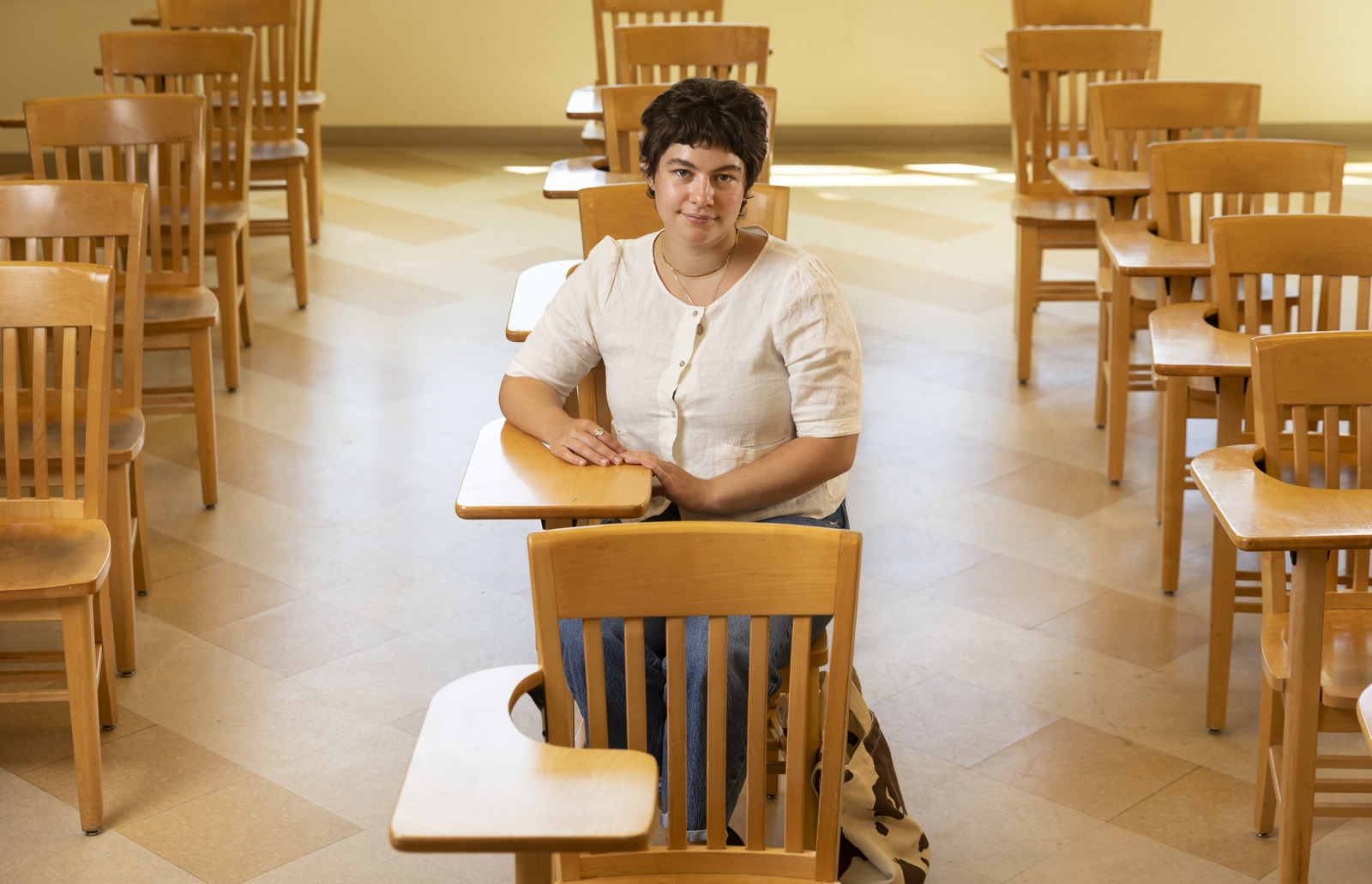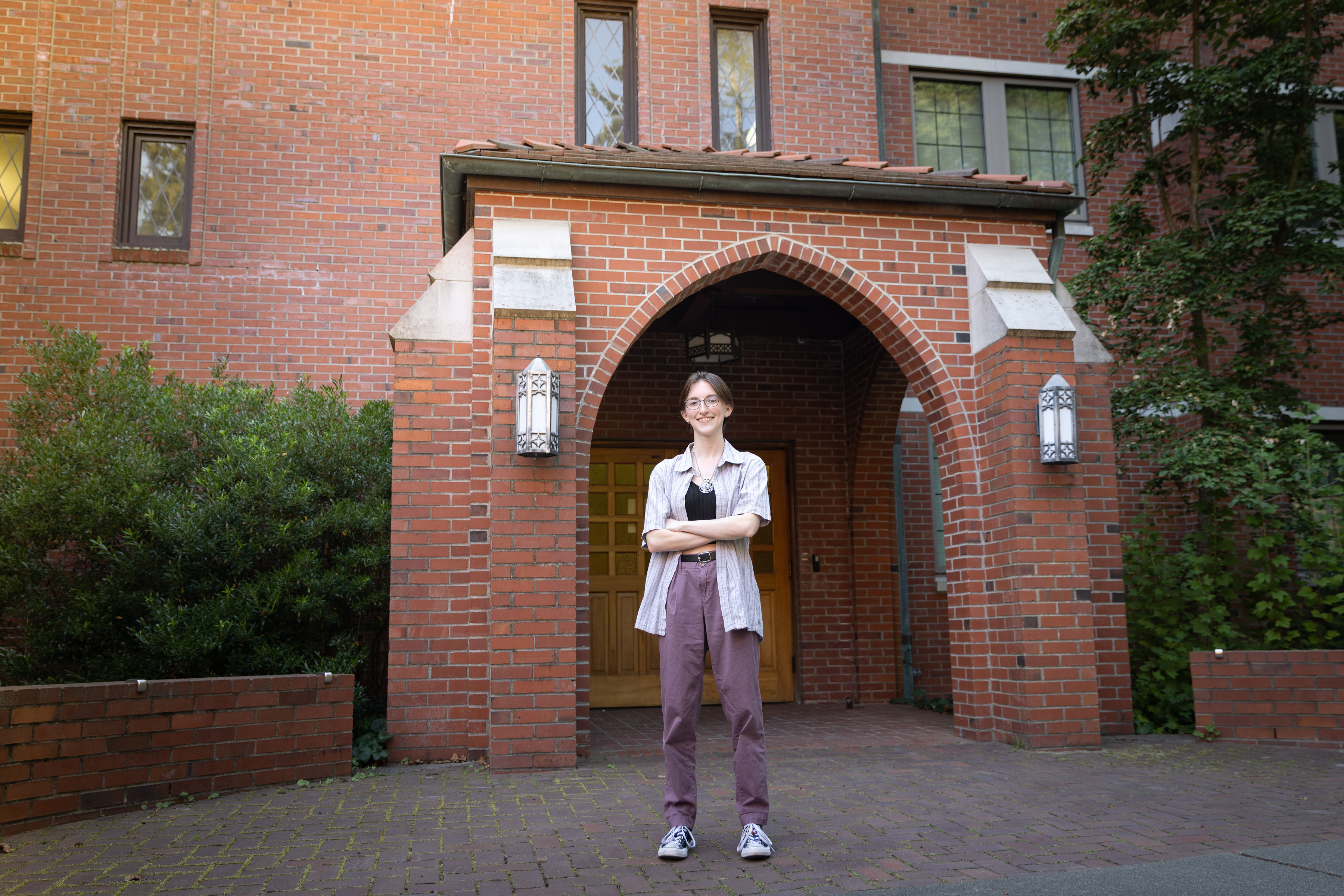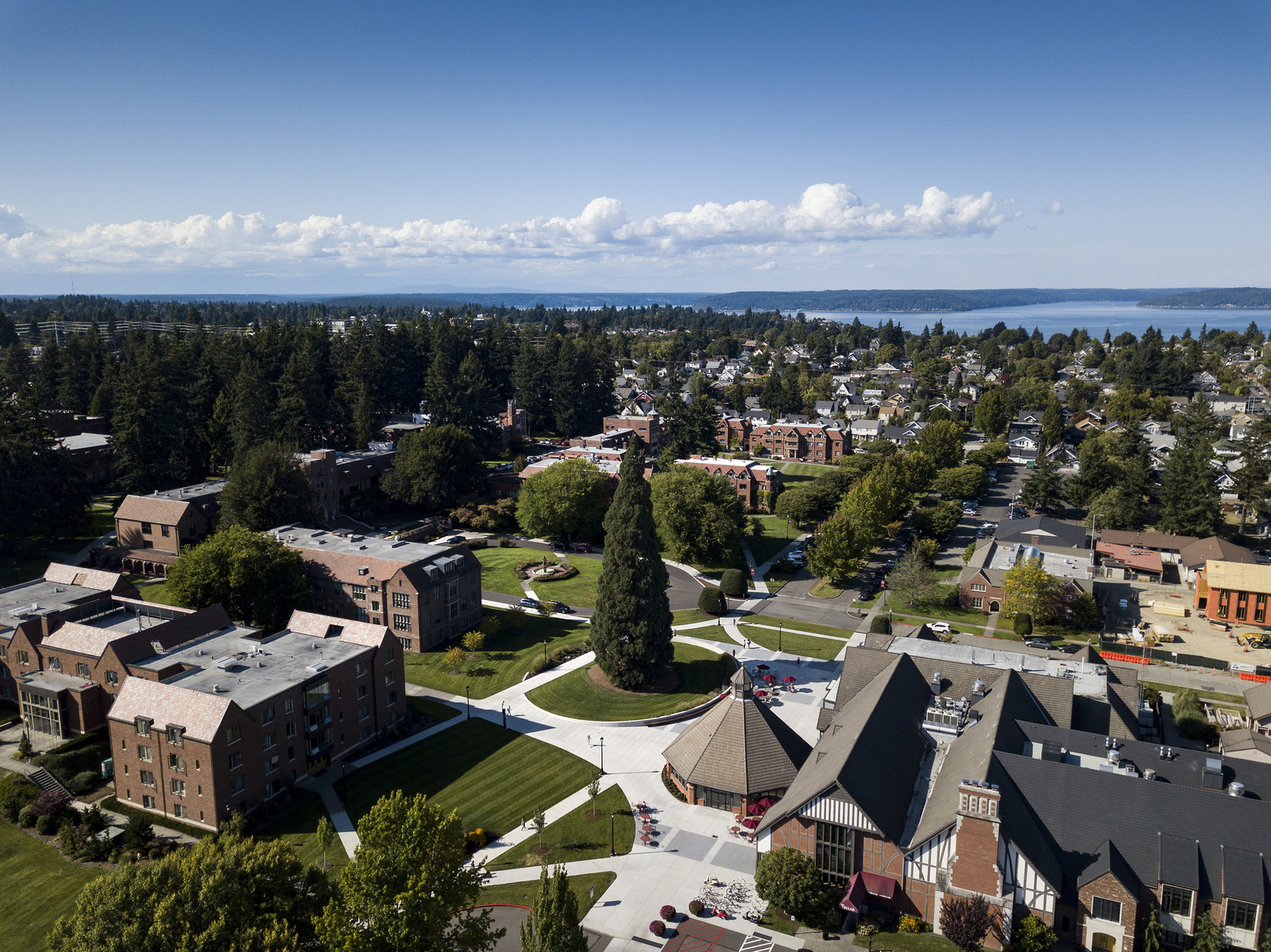With her zine, Natalie Willoughby ’21 hopes to help her peers become better advocates.
When Natalie Willoughby ’21 decided to publish a zine featuring her work on intersectionality in online activism, she was adding her voice to a rich legacy of self-published, underground magazines going back nearly a century. Like those zines, Willoughby’s project aims to spark a dialogue about a controversial topic. Taking inspiration from those publications, Willoughby is examining a new medium: online activism. It’s the culmination of a three-month summer research project, which Willoughby hopes will help her fellow students be better advocates for social justice.
